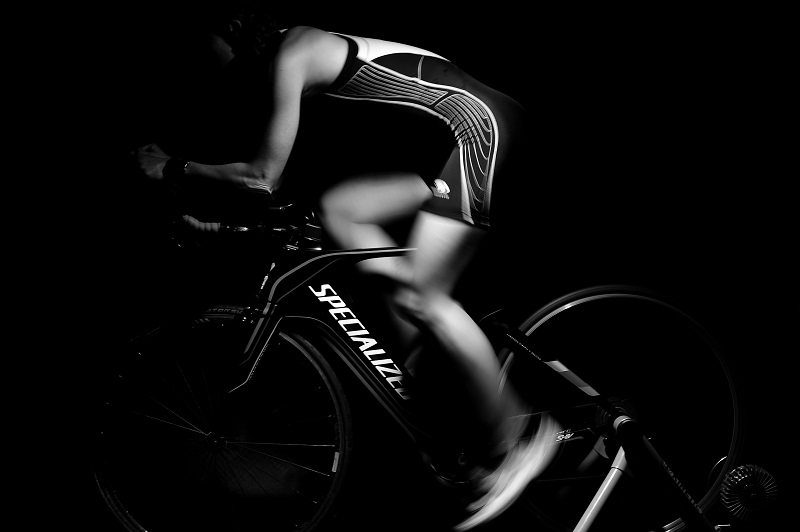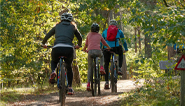
Whether you're a budding runner, an established athlete, a coach or a couch potato, you'll find lots to learn in our free courses revolving around the varied subject of sport and fitness.
Explore the free courses
-
Communication and working relationships in sport and fitness
Learn more to access more details of Communication and working relationships in sport and fitnessThis free course, Communication and working relationships in sport and fitness, explores the personal skills that underpin so much work in sport and gyms. We often hear employers refer to the importance of these interpersonal relationships or ‘soft skills’ in sport and fitness, and in this unique course you’ll build valuable insights into ...

-
Exploring sport coaching and psychology
Learn more to access more details of Exploring sport coaching and psychologyThis free course, Exploring sport coaching and psychology, investigates how scientific and management ideas contribute to success while also taking you on a journey through unique sporting case studies and insights that will change how you view and study sport. You will consider how the mind, the body, the environment and training techniques all...

-
Supporting female performance in sport and fitness
Learn more to access more details of Supporting female performance in sport and fitnessDo you support women’s performance in sport or fitness as a coach or parent? Are you a female athlete who wants to optimise your performance using recent research insights? If so, then this free course is for you. It addresses the problem of sports science research traditionally being male dominated and the assumption that if it works for men ...

-
Sporting women in the media
Learn more to access more details of Sporting women in the mediaThe mass media (e.g. radio, TV, internet) has become one of the most powerful institutional influences in society. This free course, Sporting women in the media, explores whether gendered inequalities exist in sport by evaluating the media coverage. The media can be highly influential in shaping perceptions about gender in sport and headlines ...

-
Training for endurance in sport and fitness
Learn more to access more details of Training for endurance in sport and fitnessIn this free course you will explore an important aspect of strength and conditioning which refers to the physical preparation of athletes: endurance. You will look at the physiological factors that underpin endurance and assess how endurance can be developed relative to performance in a range of sports.

-
Training for speed and power in sport and fitness
Learn more to access more details of Training for speed and power in sport and fitnessIn this free course you will explore two aspects of strength and conditioning in sport and fitness: speed and power. Strength and conditioning is the physical preparation of athletes and in this course you will explore the physiology of speed before looking at training methods to develop speed. You will also look at power which is a concept ...

-
The football World Cup: where sport and politics collide
Learn more to access more details of The football World Cup: where sport and politics collideOccasionally, controversies arise that remind us of the link between sport and politics. It was once common for leading figures in the sporting world to declare that sport was, effectively, a politics-free zone. Sport was cast as the perpetual innocent party, liable to be corrupted by any connection with politics. However, it has become ...

-
The business of football
Learn more to access more details of The business of footballThis free course, The business of football, was produced by The Open University working in partnership with The English Football League Trust. If you are fascinated by men's and women's football and interested in discovering more about business and management, then this engaging and stimulating course is for you.

-
Coaching others to coach
Learn more to access more details of Coaching others to coachAre you responsible for supporting sport and physical activity coaches to become inspirational and excellent in their practice? This course is designed for coach developers, educators, mentors and tutors who support coaches to improve. You will explore how people learn, what are the skills and qualities of an effective coach of coaches, as well ...

-
Exploring the psychological aspects of sport injury
Learn more to access more details of Exploring the psychological aspects of sport injuryHave you ever experienced a sport injury? Have you ever thought there could be a psychological dimension to sport injuries, as well as a physical one? Sport injury is relatively common among sport and exercise participants, and while the physical impact of injury is often easy to recognise, the psychological impact is less obvious. In this ...

-
Recovery strategies in sport and exercise
Learn more to access more details of Recovery strategies in sport and exerciseThe ability to recover quickly from an intensive training session or match can be extremely advantageous to sports performers. Sport and fitness participants are increasingly using strategies such as ice baths and compression clothing to enhance their recovery from intensive exercise, but how effective are these strategies? Do they really speed ...

-
Exercise and mental health
Learn more to access more details of Exercise and mental healthEach year thousands of pounds are spent on medications to treat conditions such as anxiety and depression. These medications often have negative side effects. Exercise is an alternative treatment that is low cost and has few side effects. In this free course, Exercise and mental health, we will look at the links between exercise and improved ...

-
Learning from sport burnout and overtraining
Learn more to access more details of Learning from sport burnout and overtrainingSport can place high levels of stress on athletes, coaches and others involved. If unable to cope with these stresses they may be vulnerable to developing burnout. This free course, Learning from sport burnout and overtraining, examines burnout in sport from various perspectives including both the coach’s and athlete’s perspective. Drawing on ...

-
Exploring sport online: Athletes and efficient hearts
Learn more to access more details of Exploring sport online: Athletes and efficient heartsWe all know that the heart is very important but what exactly does the heart do? Why is the blood so important? What functions do the lungs perform? In this free course, Exploring sport online: Athletes and efficient hearts, we will try to provide at least a basic understanding so we can answer these questions and begin to understand why knowing...

-
Motivation and factors affecting motivation
Learn more to access more details of Motivation and factors affecting motivationThis free course explores the term 'motivation' and factors affecting motivation. This includes looking at the most influential theories of motivation that contribute to understanding the causes of motivation. The motivation of sports people and people working in sport and fitness environments are used to help understand the theories presented.

-
The impact of technology on children's physical activity
Learn more to access more details of The impact of technology on children's physical activityThis free course, The impact of technology on children's physical activity, explores the impact of technology on children’s physical activity levels. It examines the different types of technology that children have access to and the ways in which they engage with it. As part of this discussion this course looks at information from a range of ...

-
Physical activity: a family affair
Learn more to access more details of Physical activity: a family affairThis free course, Physical activity: a family affair, aims to explore the effects that the family has on the amount and nature of physical activity a child participates in. The beliefs and behaviours of the family environment are the key psycho-social factors we investigate here.

-
A question of ethics: right or wrong?
Learn more to access more details of A question of ethics: right or wrong?Explore ethical challenges with this free course. Learn about professional principles, managing relationships, and the responsibilities of coaches and instructors in fostering trust, integrity, and character development.

Rate and Review
Rate this article
Review this article
Log into OpenLearn to leave reviews and join in the conversation.
Article reviews